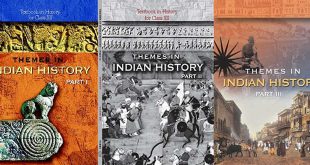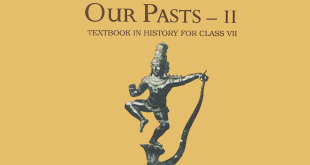Question: Give a brief description of all the three Anglo-Maratha wars. Also write the main consequences.
Answer: The Company waged a series of wars against the Marathas in order to crush Maratha power:
- In the first war there was no clear victor, hence it ended in 1782 with the Treaty of Salbai.
- The second Anglo-Maratha War began in 1803 and ended in 1805. This war was fought on different fronts resulting in the British gaining Orissa and the territories north of the Yamuna river including Agra and Delhi.
- The third Anglo-Maratha War of 1817-1819 crushed Maratha power. The Peshwa was removed. The Company now had complete control over the territories south of the Vindhyas.
Question: What administrative reformations were brought in the sphere of justice?
Answer: Before the reformations were brought, there were Maulvis and Hindu pandits who interpreted Indian laws for the European district collectors who presided over civil courts. The criminal courts were still under a qazi and a mufti. The Brahman pandits usually gave different interpretations of local laws. But there was no uniformity in them. To bring out about uniformity, in 1775 eleven pandits were asked to compile a digest of Hindu laws. N.B. Halhed translated this digest into English. By 1778 a code of Muslim laws was also compiled for the benefit of European judges, under the Regulating Act of 1773, a new Supreme Court was established, while a court of appeal—the Sadar Nizamal Adalat—was also set up at Calcutta.
Question: What factories? Why were they called so?
Answer: From 17th century onward British established their trading centres in different parts of the country, especially in the coastal areas are called factories.
They were called factories because the officials working there were called factors. These factories did not manufactured anything there, but had godowns, offices, residential quarters for the merchant and traders.
Question: What did the British stand to gain through the system of subsidiary alliance?
Answer: The system of subsidiary Alliance was very advantageous of the Indian rulers:
- They were able to maintain a large army at the cost of the Indian rulers.
- They indirectly controlled the defense and foreign affairs of the protected ally and could overthrow the ruler and annex his territories whenever they wished to.
- The ‘Residents’ (a British officer who was stationed at the rulers court) could interfere in the internal affairs of the kingdom to further the interest of the company.
 Class Notes NCERT Solutions for CBSE Students
Class Notes NCERT Solutions for CBSE Students




